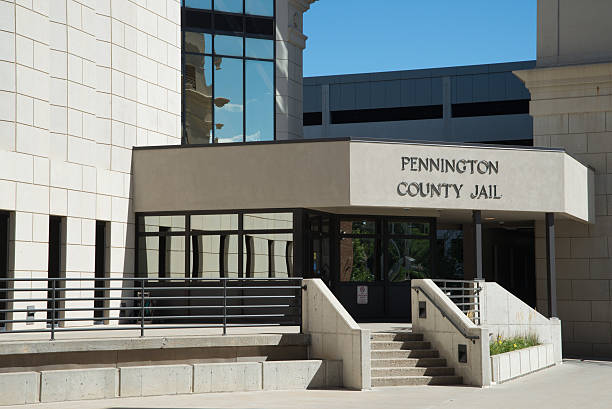Introduction
Every obituary tells a story. In Rapid City, South Dakota, those stories find a trusted home in the obituary section of the Rapid City Journal. Families rely on these tributes not only to announce the passing of loved ones but also to share personal histories, celebrate achievements, and connect with the wider community.
Obituaries from the Rapid City Journal are more than short announcements. They serve as historical records, guiding future generations and preserving the cultural fabric of the region. With the rise of online platforms, these obituaries have become more accessible, ensuring that the legacies of Rapid City residents are remembered far beyond their lifetimes.
This article dives deep into the value, history, and process of Rapid City Journal obituaries, while also exploring how families and researchers can use them as tools for remembrance and historical documentation.
The Purpose of Obituaries in a Community
1. Announcing a Passing with Respect
At their core, obituaries serve the practical role of announcing a death. However, when carefully crafted, they offer much more. They bring dignity to the individual’s final chapter and provide important details such as funeral arrangements and memorial services.
2. A Celebration of Life
Beyond facts, obituaries highlight personalities, accomplishments, and passions. By doing so, they celebrate a life lived fully and leave behind a lasting legacy.
3. Strengthening Community Bonds
Communities like Rapid City thrive on relationships. Obituaries notify friends, neighbors, and extended family members, giving them an opportunity to provide comfort and support.
4. Preserving Local and Family History
Each obituary becomes part of a larger historical record. Collectively, Rapid City Journal obituaries serve as a resource for genealogists, historians, and families seeking to preserve their roots.
Why Rapid City Journal Obituaries Are Significant
The Rapid City Journal has long been a trusted source of information in western South Dakota. Its obituary section stands out for several reasons:
- Regional Relevance – Unlike national obituary sites, it focuses on the lives of local residents.
- Generational Continuity – Families often publish obituaries for multiple generations, weaving family history into community records.
- Digital Access – Online archives ensure that anyone can search for obituaries, whether they live in Rapid City or across the globe.
- Credibility – With decades of journalism experience, the Rapid City Journal provides accuracy and professionalism.
How to Find Rapid City Journal Obituaries
1. Newspaper Website
The Rapid City Journal’s official website features a searchable obituary section. Readers can look up names, dates, or keywords to locate specific entries.
2. Legacy.com and Similar Platforms
Many obituaries from the Rapid City Journal are also accessible through online platforms like Legacy.com, which partner with local newspapers to expand reach.
3. Public Libraries
The Rapid City Public Library maintains archives of past newspaper issues, including obituaries, which are often stored on microfilm or in digital databases.
4. Genealogy Websites
Websites like Ancestry.com and FamilySearch frequently include obituary records, providing genealogists with valuable family connections.
How to Publish an Obituary in the Rapid City Journal
Steps to Follow
- Contact the Newspaper – Families or funeral homes reach out directly to the Rapid City Journal to begin the process.
- Prepare Essential Information – Include the full name, age, date of birth, date of passing, and surviving relatives.
- Craft the Life Story – Share career achievements, community involvement, and personal qualities.
- Add Service Details – Mention funeral, memorial, or celebration of life events.
- Review and Approve – Carefully proofread before final submission to avoid errors.
Writing Tips
- Keep the tone respectful yet warm.
- Blend factual details with storytelling to capture personality.
- Avoid unnecessary jargon; clarity ensures accessibility.
- Limit length if cost is a concern, but prioritize key details.
Themes Often Found in Rapid City Journal Obituaries
Obituaries reflect not only the individual but also the values of the community. In Rapid City, common themes include:
- Faith and Spirituality – Many obituaries highlight church membership and devotion.
- Service and Hard Work – Farming, ranching, military service, and public roles are often celebrated.
- Family Bonds – Deep connections to family are central to most obituaries.
- Community Contribution – Volunteerism, civic duty, and mentorship are often acknowledged.
These recurring themes show the strong ties that define life in western South Dakota.
Obituaries as Historical and Genealogical Resources
Historians and genealogists rely heavily on obituary archives. For families in Rapid City, these records provide a wealth of information:
- Names of parents, siblings, and children.
- Migration and settlement patterns.
- Historical context, such as military service or community involvement.
- Connections across generations.
By piecing together these narratives, researchers preserve a broader picture of the community’s past.
Print vs. Digital Obituaries
Print Obituaries
Traditionally, obituaries appeared only in the printed newspaper. They remain cherished by many, often clipped and saved in scrapbooks or family albums.
Digital Obituaries
With the internet, obituaries are now published online. Digital versions offer several advantages:
- Permanent archives accessible anytime.
- Ability to share across social media platforms.
- Space for photos, condolences, and memories.
- Broader reach beyond the local community.
This shift has made Rapid City Journal obituaries more accessible than ever.
The Emotional Role of Obituaries
For grieving families, writing an obituary is part of the healing journey. It allows loved ones to reflect, honor achievements, and find meaning in shared memories.
Obituaries also invite the community into the grieving process, which helps families feel supported during a difficult time. This collective mourning strengthens community bonds.
Challenges When Writing Obituaries
While obituaries are meaningful, they can also be challenging to write.
- Time Sensitivity – Funeral arrangements often create tight deadlines.
- Emotional Weight – Writing during grief can feel overwhelming.
- Cost Considerations – Longer obituaries may increase publication fees.
- Accuracy – Ensuring all names, dates, and details are correct is crucial.
Support from funeral homes and the newspaper staff often helps families navigate these difficulties.
Preserving Rapid City Journal Obituaries for the Future
Families often seek ways to preserve obituaries beyond the printed page. Some methods include:
- Creating memorial scrapbooks.
- Saving digital files to cloud storage.
- Printing framed versions as keepsakes.
- Uploading entries to genealogy platforms for posterity.
These practices ensure that loved ones’ legacies endure for generations.
The Role of Funeral Homes in Obituary Publication
Funeral homes frequently act as intermediaries between families and the Rapid City Journal. They help write, format, and submit obituaries, ensuring the process remains smooth and stress-free. Their experience ensures accuracy and professionalism.
Looking Ahead: The Future of Obituaries in Rapid City
Obituaries will continue to evolve alongside technology. Future possibilities include:
- AI-Personalized Obituaries – Tools that automatically format life stories.
- Video Tributes – Multimedia features within online obituary pages.
- Interactive Memorial Pages – Family members can continuously update stories, photos, and memories.
- Deeper Archiving – Expanded databases that make historic obituaries searchable worldwide.
As technology advances, Rapid City Journal obituaries will remain both a personal tribute and a historical record.
Frequently Asked Questions (FAQs)
1. How do I search for Rapid City Journal obituaries online?
You can visit the newspaper’s website or platforms like Legacy.com to search by name, date, or keyword.
2. Can older obituaries still be found?
Yes. Libraries and genealogy databases preserve older obituary archives for research and family history.
3. How much does it cost to publish an obituary in the Rapid City Journal?
Costs vary by length and design. Families should contact the newspaper or funeral homes for pricing details.
4. Can I include photos in an obituary?
Yes. Both print and online editions allow photos, though additional fees may apply.
5. Why are obituaries considered valuable for genealogy?
They contain family names, connections, and details that help build family trees and preserve heritage.

